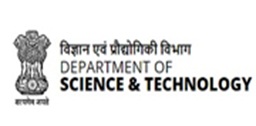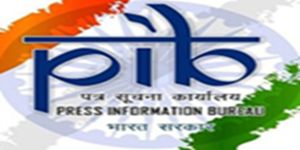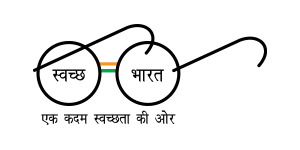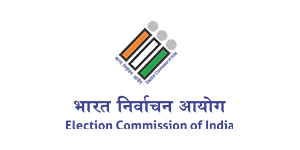North East Centre for Technology Application and Reach (NECTAR)
FINANCIAL BY-LAWS
Under Rule 12 (xiii) of the Rules of the NORTH EAST CENTRE FOR TECHNOLOGY APPLICATION AND REACH (NECTAR), the Governing Council hereby makes and adopts, with prior approval of the Central Government, the following Financial BY-LAWS:
PART I : SHORT TITLE AND COMMENCEMENT
1. Description
- These BY-LAWS shall be called the NORTH EAST CENTREFOR TECHNOLOGY APPLICATION AND REACH (NECTAR) Financial BY-LAWS, 2017, hereinafter referred to as the Financial BY-LAWS.
- These Financial BY-LAWS have been approved by the Government of India vide letter No. AI/18/1/NECTAR/2017 dated 3rd May, 2018.
- These Financial BY-LAWS shall come into force from the date of adoption by the Governing Council.
2.Definitions
Various terms used in these Financial BY-LAWS will have the same meaning as defined in Bye-Law 3 of Service BY-LAWS.
PART II : BUDGET ESTIMATES
3.The Budget Estimates for the ensuing year will normally be finalized in October each year by the Centre. The budget will show under various heads:
- The actual receipts and expenditure of the preceding year;
- The Budget and Revised estimates for the current year;
- The proposed Budget Estimates for the ensuing year;
4.The Director General shall prepare the detailed Budget Estimates as above and place them before the Executive Council. The Budget Estimates as finally recommended by the Executive Council will be placed before the Governing Council of the Centre for approval. The estimates will thereafter be submitted to the Government.
5. The Budget Estimates will be prepared in the prescribed form to show the Annual Estimates of receipts and expenditure under various heads of account. The heads of classification shall be according to the sources of income and main heads of expenditure called primary units of appropriation.
6. The funds provided in the approved Budget Estimates shall be deemed to be at the disposal of the Governing Council and the Director General will have full powers to appropriate moneys therefrom to meet expenditure provided that no funds of the Centre shall be appropriated or re-appropriated to meet expenditure on a new service or item not included in the approved budgets, or any head of expenditure not approved by the Governing Council.
Write-off of losses
7. For write-off of losses, the Governing Council may follow the provisions contained in the General Financial Rules of the Government and other relevant government instructions as in force from time to time.
PART III : FINANCIAL MANAGEMENT AND CONTROL
Application of General Financial Rules, as applicable from time to time
8. The provisions of the General Financial Rules (as applicable from time to time) and other relevant government instructions, as in force from time to time, shall be applicable in the financial management of the Centre.
Finance Committee
9. There shall be a Finance Committee of the Centre with its constitution as follows:
- Director General - Chairman
- Financial Advisor, Department of Science & Technology or his nominee - Member
- Two members of the Executive Council nominated by the Chairman, Governing Council - Members
- One of the Advisers (Technical) of NECTAR nominated by Director General - Member
- Senior Administrative Officer - Member Secretary
10. The powers and functions of the Finance Committee shall be as follows:
- To consider the annual Budget Estimates of the Centre and make recommendations thereon to the Governing Council;
- To scrutinize the Audited Annual Accounts of the Society before their submission to the Governing Council.
- To recommend write-off of losses;
- To consider proposals for creation of new posts and make recommendations to the Governing Council in keeping with the guidelines issued by the Central Government from time to time;
- To consider revision of pay scales, allowances and other terms and conditions of service of staff having financial implications and make recommendations to the Governing Council;
- To advise the Society from time to time in various financial matters;
- Any other item to be specifically allotted by the Director General, the Executive Council or the Governing Council of the Centre from time to time.
11. Technology Delivery Partnerships and Projects
(a)The principal aim of the Centre is to deliver and implement technology solutions to the States of the North East Region. The concerned projects may assume various forms such as Memorandum of Understanding, Public Private Partnership (PPP), purchase and services contract and so on. The partnering or contracting entities and organizations would include the governmental organizations, the public and the private sector, non-profit institutions and international organisations. The Director General shall have full powers of executing these contracts and partnership agreements provided that the financial implications are within the approved and budgeted schemes and programs and subject to the delegation of financial powers to the various levels as follows:
S.No.Contracts for purchases, services and partnershipsAppraisal forumApproval Authority
- Upto Rs 25 lakhsConcerned DivisionDirector General
- More than Rs 25 lakhs and upto Rs 150 lakhsTechnical Advisory CommitteeDirector General
- Greater than Rs 150 lakhsTechnical Advisory CommitteeEC or a separate project committee.
(b) All projects with Technology Development Assistance, other than grants-in-aid, of more than Rs. 50 lakhs shall be approved by the Executive Council. Grant-in-aid cases, upto Rs. 25 lakhs each, shall be approved by the DG, and beyond Rs. 25 lakhs each by the EC.
(c)The Director General shall have full powers to set up standing or project-specific Technical Advisory Committees for the purposes set out in the preceding clause.
(d)The Centre may also implement technology delivery projects and programs with components of grants-in-aid and/or Technology Development Assistance employing appropriate financial instruments to the recipient bodies as per approved and budgeted schemes. The delegation of financial powers and the process outlined in clause (1) above shall also apply to such schemes and programs.
12. In the financial management and control of the Centre, the Director General will be responsible for overall financial affairs, financial control systems, audit, and record keeping activities. Director General will be assisted by the Senior Administrative Officer. NECTAR shall designate an officer of appropriate level to render financial advice whose concurrence shall be obtained for sanction and incurring of expenditure. Financial limits upto which concurrence is mandatory may be drawn with the approval of Governing Council.
13.The funds of the Centre shall be invested as specified in the Rules of the Centre. The funds shall be deposited in one or more nationalised banks in any of the instruments, deposit and other schemes and accounts of the said banks.
Drawing and Disbursing Officer
14. The Senior Administrative Officer, or any officer of the Centre shall be designated as the “Drawing and Disbursing Officer” (DDO). The Director General or the Senior Administrative Officer, as the case may be, may delegate the various financial powers such as opening of bank accounts, cheque signing powers with financial limits separately and jointly, signing of contracts and agreements for purchases and services and other financial activities to officers subordinate to them.
Execution of Contracts
15. All contracts by or on behalf of the Society and the Centre shall be signed by the Director General or by an officer of the Centre authorised by the Director General.
Representation in legal proceedings
16. The Director General or an officer empowered in this behalf by the Director General, may sue and be sued in the name of the Centre.
PART IV : ACCOUNTS AND AUDIT
17. The accounts of the Society shall be maintained in such form as may be prescribed by the Central Government, and as approved by the Governing Council on the recommendations of the Finance Committee.
18. The accounts of the Institute may be audited annually by a firm of chartered accountants empanelled by the Comptroller & Auditor-General of India (C&AG), that is, internal auditors, as defined in Chartered Accountants Act, 1949 (Act XXXVIII of 1949) appointed by the Director General on behalf of the Governing Council, and any expenditure incurred in connection with such audit shall be payable by the Centre to the Auditors. The accounts of the Centre shall be subject to audit by the C&AG as per the statutory provisions and the provisions of General Financial Rules of the Central Government.
19. As soon as practicable after the accounts of a financial year are closed but not later than the end of June following, the Director General shall cause to be compiled and prepared the Annual Accounts of the Centre as on 31st March for the preceding year, consisting of:
- Receipts and Payments Accounts;
- Income and Expenditure Accounts; and
- Balance Sheet.
20. The Director General shall immediately after the preparation of the Annual Accounts (as on 31st March) submit them to the Internal Auditors of the Centre for audit and certification.
21. Subject to the provision of any law for the time being in force and applicable to the Centre, the Auditors will audit receipts and expenditure of the Centre and report on the receipts and expenditure audited by them. For discharging these duties, the Auditors shall have right of access, after giving reasonable previous notice, to the books, accounts, and other records of the Centre.
22. The Director General shall submit the Audit Certificate along with the Audit Report, if any, of the Statutory Auditors as well as the Annual Accounts and replies of the Centre to the Audit observations contained in the Audit Report to the Finance Committee and the Executive Council for scrutiny and to the Governing Council, for approval. These documents shall thereafter, be forwarded, along with the observations, if any, of the Governing Council to the Central Government.
23. The Annual Report and the Audited Annual Accounts of the Centre will be placed before the Governing Council for approval not later than the end of September every year.
24. The Director General shall be competent to lay down such procedures and issue such instructions for the due observance of these Financial BY-LAWS as may be necessary from time-to-time, subject to extant instructions of the Central Government as applicable from time to time.
PART V : POWERS OF THE DIRECTOR GENERAL
25. The Director General of the Centre shall exercise as the Head of Department, the powers as prescribed by the Rules of the Centre and by these Financial BY-LAWS and such other powers as may be delegated to him by the Governing Council and the Executive Council from time to time subject to extant instructions issued by the Government as amended from time to time.
26.The Centre shall observe the rules and procedures as are generally followed in the Central Government offices in respect of matters pertaining to mode of payments, advances, security deposit and other security instruments against purchases, performance of contracts and services etc.
27. The Director General may delegate any of the powers vested in him under these Financial BY-LAWS to any of the officers of the Centre provided that no powers shall be delegated in respect of re-appropriation of funds, write off of losses and incurring of capital and other expenditure in excess of Rs one lakh in each individual case.
28. Any action taken or any powers exercised before the coming into force of these Financial BY-LAWS, and all sanctions, orders, declarations or other actions taken before the commencement of these Financial BY-LAWS shall continue to be operative and in force even after the commencement of these Financial BY-LAWS, unless specifically cancelled or revoked by the authority who accorded such sanction or took such action, or by a higher authority (GC in case of decision taken by the EC and/or DG and EC in case of decision by the DG).
cation and any other documents as may be prescribed.
16. Probation
- Subject to the provision of Clause (2) below, every person directly recruited to a post under the Centre shall be on probation for one year.
- There will be no probation if the recruitment of a person is on (i) contract or re-employment basis (ii) deputation (iii) fixed tenure basis or (v) absorption after deputation.
- The Appointing Authority may extend the period of probation of an employee on assessment of his performance, provided that no employee shall be kept on probation for more than double the normal probation period. The decision to extend the period of probation shall be taken and communicated to the employee before the expiry of the original, or extended, period of probation.
- Satisfactory completion of the probation period shall be communicated to the employee not later than four months after the expiry of the probation period.
- Where an employee on probation is found unsuitable for holding the post or for retention in the service of the Centre the Appointing Authority may terminate his or her services under the Centre as per the instructions of the Central Government issued from time to time.
17. Confirmation
- After satisfactory completion of the probation period, the employee shall be confirmed.
- Confirmation shall be delinked from the availability of permanent posts.
18. Termination of Service
The Appointing Authority shall be competent to terminate the service of an employee as per the rules and instructions of the Central Government from time to time.
19.Engagement of Contractor for outsourced services:
The Centre may engage support staff for secretarial services, maintenance of infrastructure and other such support services, through outsourcing on contract as per the provisions and instructions of the Central Government from time to time.
20. Engagement of Consultants
The Centre may engage consultants for specific assignments for which the in-house expertise is absent or insufficient. Such appointment or engagement will be done taking into account the guidelines and applicable rules of the Central Government.
21.Resignation from Service
(a)Subject to the provisions of clause (2) below an employee may tender resignation from service by giving in writing, to the Appointing Authority, a notice of:
- Thirty days, if he or she is a temporary employee; or
- Ninety days, if he or she is a regular employee.
(b)The Appointing Authority may, at its discretion:
- Set off Earned Leave at credit of the employee against the notice period if such a request is made by the employee; and
- Permit an employee to resign from service by a shorter notice than is prescribed in clause (1) above, provided that such shorter notice will not cause any administrative inconvenience.
(c)Resignation will be deemed to be operative only after it has been accepted by the Appointing Authority.
22. Superannuation
- The age of superannuation for all the regular employees of the Centre shall be as per Central Government Rules as amended from time to time.
- In all matters of retirement, except if otherwise provided, the procedures and rules of the Central Government will apply.
23. Deputation to other Organizations, Authorities and Bodies
- Deputations of the employees of the Centre to other Organizations shall be governed by the rules of the Central Government.
- Deputation to outside organizations cannot be claimed by an employee as a matter of right. It shall be decided by the Appointing Authority in each case, having regard to the interests of the Centre.
- In cases of posts falling vacant temporarily due to deputations, long leave or for any other reasons for more than six months, such posts may be filled on ad-hoc basis, which would include appointment on contract, at the discretion of the Appointing Authority.
PART V : PAY AND ALLOWANCES
24.Pay and Allowances
- The pay and allowances of the employees of the Centre shall be the same as in Government and shall be governed by the Government rules, instructions and guidelines issued from time to time.
- The Director General, subject to Government instructions in this regard, may grant or permit an employee of the Centre to receive an honorarium as remuneration for work performed, which is of occasional or intermittent nature and either so laborious or of such special merit as to justify a special reward. It shall be for special reasons and for the work done outside the normal sphere of one’s duty.
PART VI : OTHER ENTITLEMENTS AND FACILITIES
25.Leave
- The provisions of the Central Civil Services (Leave) Rules, 1972, and other orders and instructions issued from time to time by the Central Government, shall be applicable to the employees of the Centre.
- The Director General shall be the competent authority to grant leave and he shall have the powers to delegate his powers by order to any of the specified officers of the Centre for various categories of employees.
- In case of the Director General himself, the Chairman, Governing Council shall be the Competent Authority for granting leave.
26.Travelling and Daily Allowance
- The employees of the Centre shall be entitled to Travelling Allowance and Daily Allowance etc. on the same terms and conditions as are applicable to the Central Government employees.
27. Foreign Travel
- Deputations for foreign travel for work will be sanctioned by the Executive Council for the employees of the Centre, subject to ratification of the Governing Council.
- The Chairman, Governing Council shall approve deputation of the Director General abroad in connection with official duties and/or academic or scientific/technical business and the same will be reported at the next Governing Council meeting for information.
28. T.A. on Transfer/Retirement
T.A. on transfer/retirement and joining time shall be as per the Central Government Rules or Orders issued from time to time.
29.Leave Travel Concession
The employees of the Centre shall be entitled to Leave Travel Concession on the same terms and conditions as are applicable to the employees of the Central Government.
30. Medical Facilities
- The regular employees of the Centre shall be eligible for medical reimbursement benefits for medical treatment of self and dependent family members as admissible to the Government of India employees of the same categories as per Government of India rules and orders on the subject issued from time to time. Deputationists may also opt for this scheme in lieu of scheme in force in their parent organization within one month of appointment in the Centre.
- The term “family” for the purpose of these by laws shall have the same meaning as defined in CSMA/CGHS Rules.
- The employees of the Centre shall be entitled to avail the facility of inpatient or hospitalisation treatment in respect of self and the dependent family members and reimbursement as per the rules and rates of the Central Government Health Scheme of the Central Government.
- The Centre may alternatively choose to prescribe and adopt a scheme of Group Medical Insurance for its employees, as approved by the Governing Council, for inpatient or hospitalisation treatment. However, the facility of Group Medical Insurance shall not be a facility in addition to the provisions made in clause (3) above.
31. Membership of Professional Bodies
- The officers of the Centre of the level of PB-4 and above are encouraged to participate in professional bodies/institutions in the field of their specialization. The Centre shall reimburse membership fee limited to 90% of the annual subscription for one National and one International professional body. Life membership will not be allowed. The maximum amount that can be reimbursed on this account is limited to Rs 10,000/- in a year.
- The Governing Council may extend this benefit to other employees of the Centre.
32. Other facilities
The Director General, with the approval of the Governing Council, may devise schemes with rules and limits for providing other facilities to the various categories of the employees such as residential telephone and Internet facility, canteen facility, reimbursement of expenses for newspapers and magazines, other allowances etc. Such facilities, except in special circumstances, will not exceed the provisions for equivalent employees of the Central Government.
33. New Pension Scheme (NPS)
Regular employees of NECTAR shall be covered under the New Pension Scheme (NPS) and they shall contribute to the scheme at the rates prescribed by the Central Government from time to time. NECTAR shall contribute its obligatory contribution as prescribed under the scheme.
34. Gratuity
Regular employees of NECTAR shall be eligible for gratuity as per the Gratuity Act of the Central Government and rules made thereunder.
PART VII: DISCIPLINE AND CONDUCT
35.DISCIPLINE
- The Central Civil Services (Classification, Control and Appeal) Rules, 1965 as amended from time to time shall mutatis mutandis be applicable to employees of the Centre.
- The Disciplinary Authority and the Appellate Authority in respect of posts in the Centre shall be as under:
PostsDisciplinary AuthorityAppellate Authority
Director GeneralGoverning Council, with prior approval of the Government of IndiaGovernment of India
All posts carrying Grade Pay of Rs.6600/- and aboveChairman, Governing CouncilGoverning Council
All posts carrying Grade Pay below Rs. 6600/-Director GeneralChairman, Governing Council
36. Conduct Rules
The Central Civil Services (Conduct) Rules, 1964 as amended from time to time shall mutatis mutandis be applicable to the employees of the Centre.
37.Annual Performance Appraisal System
An Annual Performance Appraisal Report (APAR) System will be devised by the Director General for all the employees of the Centre in accordance with the instructions of the Central Government from time to time and in accordance with the functional requirements of various posts.
PART VIII: MISCELLANEOUS
38. Transfer/Posting of Employees
Every employee of the Centre is liable to be transferred/posted at the discretion of Director General to serve at any of the offices/branches/activity sites of the Centre keeping in view the expertise of the individual required on the particular location, and purely in the interests of the Centre.
39. Working hours
The working hours of the Central Government shall be followed.
40. Attendance
Attendance shall be marked daily according to the methods prescribed from time to time. Employees are required to take permission from their reporting officer for being absent from the office.
41. Holidays
The Centre shall observe holidays as per the orders of the Central Government.
42. Grievance Redressal
The Centre shall have an open door policy to address the grievances of staff at all levels as per the guidelines and procedures prescribed by the Govt. of India.
43. Residential Accommodation for Employees
An employee of the Centre may be provided with unfurnished accommodation, subject to availability and also subject to such conditions as may be laid down by the Governing Council, within the campus of the Centre in which he or she may be required to reside, subject to collection of rental charges as per Central Government Rules.
The Governing Council may authorize the grant of rent free furnished or unfurnished accommodation to any employee or category of employees, subject to extant instructions issued by Government of India, if it considers it necessary to do so in the interests of the Centre. However, it may be allowed under special circumstances and the given facility shall cease whenever the incumbent vacates the post.
44. Delegation of powers
- The Governing Council may delegate any of its powers to the Executive Council or the Director General under these by laws.
- The Executive Council or the Director General may delegate any of their powers to any of the Officers of the Centre.
45. Residuary Conditions of Service
Any matter relating to the conditions of service of an employee for which no provision is made in these by laws shall be determined in accordance with the relevant Central Government rules and orders in force at that time.
46.Power to relax
Notwithstanding anything contained in these by laws, the Governing Council or its Chairman may, for reasons to be recorded in writing and with the prior approval of the Central Government, relax any of the provisions of these by laws, with respect to any class or category of employees of the Centre.
47. Interpretation and Amendment
- With regard to interpretation of any of these by laws, the Governing Council may refer the matter to the Government and the decision of the Government shall be final.
- The Governing Council may amend or repeal any of the provisions of these by laws with prior approval of the Central Government.
Page Last Updated : 11-08-2025 - 22:51

















